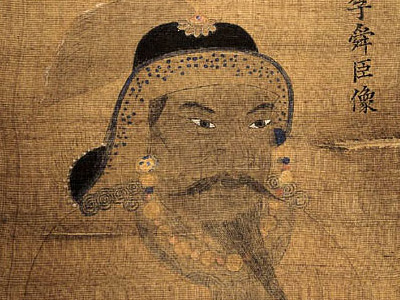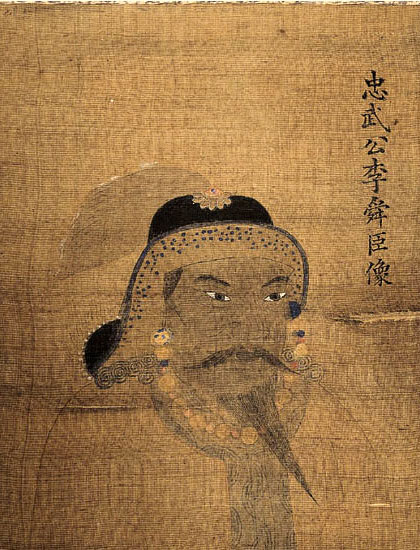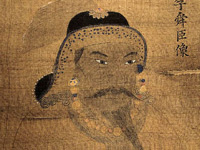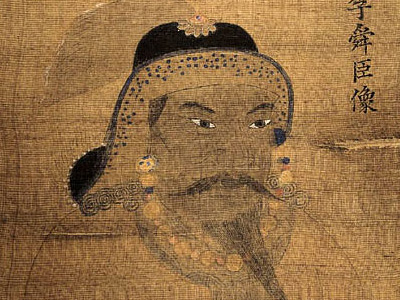Yi Sun-Shin 이순신 (1545-1598)

Yi Sun-sin (Hunminjeongeum: 이순신; Hanja: 李舜臣; April 28, 1545 – December 16, 1598) was a Korean naval commander, famed for his victories against the Japanese navy during the Imjin war in the Joseon Dynasty, and is well-respected for his exemplary conduct on and off the battlefield not only by Koreans, but by Japanese admirals as well. Military historians have placed General Yi Sun-Sin on par with Admiral Horatio Nelson as arguably the greatest naval commander in history for his undefeated record against seemingly insurmountable odds despite no background in naval training. His title of Samdo Sugun Tongjesa (삼도 수군 통제사 ; 三道水軍統制使), literally meaning "Naval Commander of the Three Provinces", was the title for the commander of the Korean navy until 1896.

Perhaps his most remarkable military achievement occurred at the Battle of Myeongnyang. Outnumbered 133 warships to 13, and forced into a last stand with only his minimal fleet standing between the Japanese Army and Seoul, he still managed to leave 31 of the 133 Japanese warships either destroyed or impaired, without losing a single ship of his own.
Despite never having received naval training or participating in naval combat prior to the war, and constantly being outnumbered and outsupplied, he went to his grave as one of few admirals in world history who remained undefeated after commanding as many naval battles as he did (at least 23).
Yi died at the Battle of Noryang on December 16, 1598. With the Japanese army on the verge of being completely expelled from the Korean Peninsula, he was mortally wounded by a single bullet. His famous dying words were: "The battle is at its height. Beat my war drums. Do not announce my death."
The royal court eventually bestowed various honors upon him, including a posthumous title of Chungmugong (충무공; 忠武公; Duke of Loyalty and Warfare), an enrollment as a Seonmu Ildeung Gongsin (선무일등공신; 宣武一等功臣; First-class military order of merit during the reign of Seonjo), and two posthumous offices, Yeonguijeong (영의정; 領議政; Prime Minister), and the Deokpung Buwongun (덕풍부원군; 德豊府院君; The Prince of the Court from Deokpung). Yi remains a venerated hero among Koreans today.
HISTORY

RESOURCES
This article uses material from the Wikipedia article "Yi Sun-Shin", which is released under the Creative Commons Attribution-Share-Alike License 3.0.
© Stories Preschool. All Rights Reserved.











